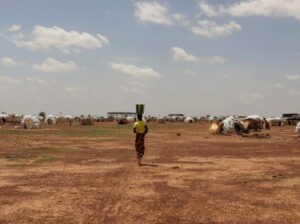Togo: Togolese government strengthens environmental policy
The Togolese government is firmly committed to a robust environmental policy focused on the well-being of its population and the fight against climate change. The Integrated Management Project of the Peripheries of Protected Areas (GIPAP) is one of the flagship initiatives illustrating this commitment.
The GIPAP, spanning five years, benefits around 7.000 households. This project is part of the Support Program for the Fight Against Climate Change, Biodiversity Protection, and Agroecology (PALCC+). It aims to reduce the anthropogenic pressures exerted by neighboring populations on three protected areas: Fazao-Malfakassa Park, the classified forest of Abdoulaye, and the Togodo-Mono reserve.
The main objective of the GIPAP is to strengthen the ecological system and preserve the environment through several concrete actions. These actions include reforestation, livestock farming, and vegetable gardening.
In 2023, Togo established the National Office of Protected Areas (ONAP), an institution dedicated to the management and protection of protected areas. Additionally, a law is being prepared to ensure the optimal and sustainable management of these spaces. This reinforced institutional and legislative framework demonstrates the Togolese government’s determination to implement lasting measures for environmental conservation.
The Integrated Management Project of the Peripheries of Protected Areas (GIPAP) is thus a concrete example of how Togo is enhancing its environmental policy for the well-being of its people and the fight against climate change. Through concerted actions and a solid institutional framework, the country is on the path to sustainable and environmentally respectful development.






